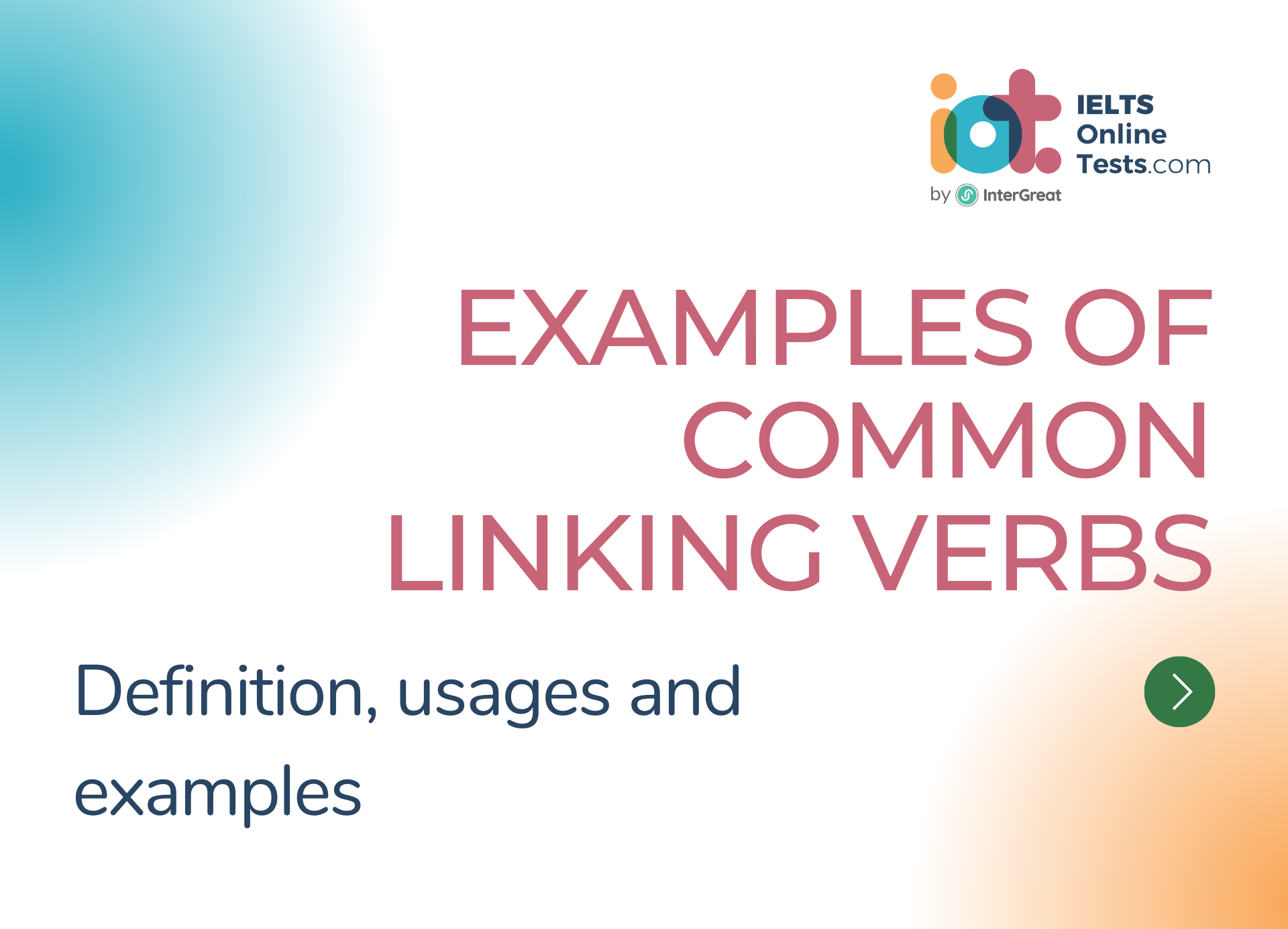
Examples of common linking verbs
Here are some more examples of common linking verbs:
Be:
- "She is intelligent."
- "They are friends."
- "I am tired."
- "The book was interesting."
- "We will be at the party."
Seem:
- "He seems confident."
- "The movie seems boring."
- "They seem happy together."
- "It seems like a good idea."
- "She seems tired."
Become:
- "She became a doctor."
- "He became famous overnight."
- "They became close friends."
- "It will become clear soon."
- "We have become better at playing the guitar."
Look:
- "He looks tired."
- "She looks stunning in that dress."
- "They look happy together."
- "It looks like rain."
- "The house looks beautiful."
Feel:
- "I feel happy."
- "She feels sad about the news."
- "They feel excited about the trip."
- "He feels nervous before exams."
- "The fabric feels soft."
Sound:
- "The music sounds soothing."
- "Her voice sounds melodious."
- "It sounds like a great plan."
- "The alarm sounds annoying."
- "The car engine sounds strange."
Remain:
- "He remains calm under pressure."
- "She remained silent throughout the meeting."
- "They will remain friends forever."
- "The issue remains unresolved."
- "We have remained committed to our goals."
Grow:
- "The plants grow quickly in the sunlight."
- "He grew taller over the summer."
- "Their friendship grew stronger over time."
- "The company grew rapidly in the market."
- "We have grown fond of each other."
These examples showcase the usage of common linking verbs in various contexts. Remember that linking verbs connect the subject to a complement that describes or identifies it, expressing a state of being, appearance, or condition rather than an action.




